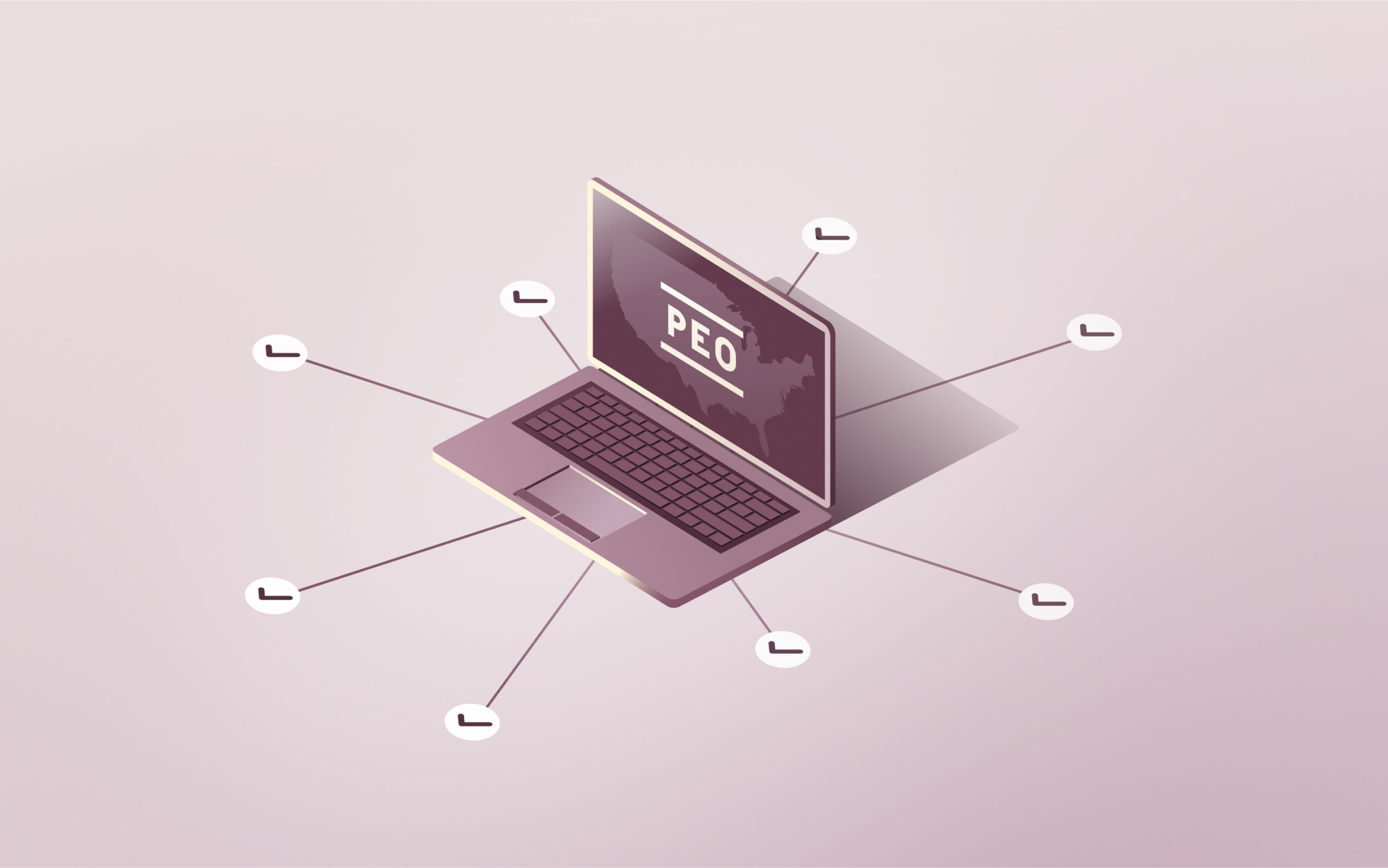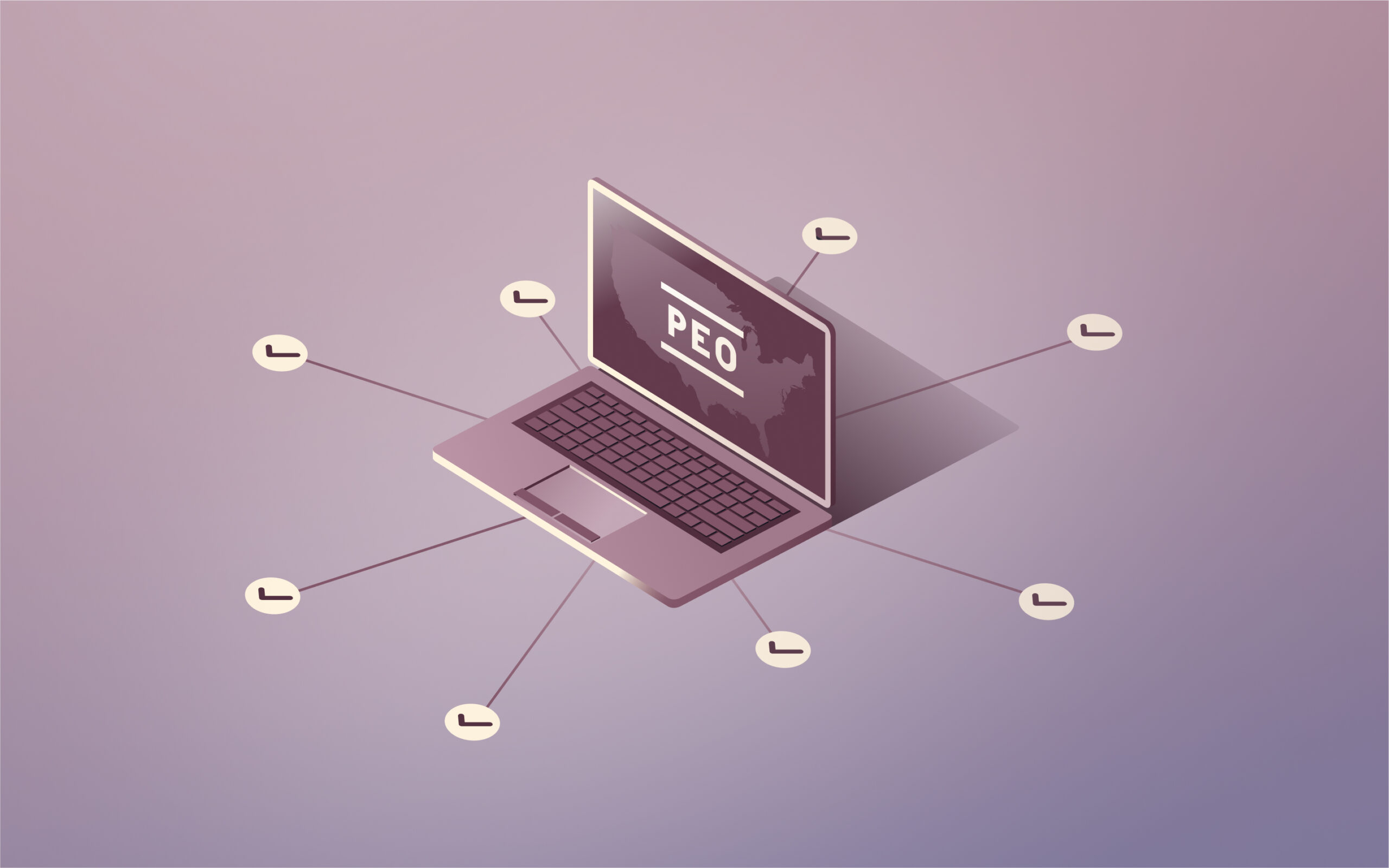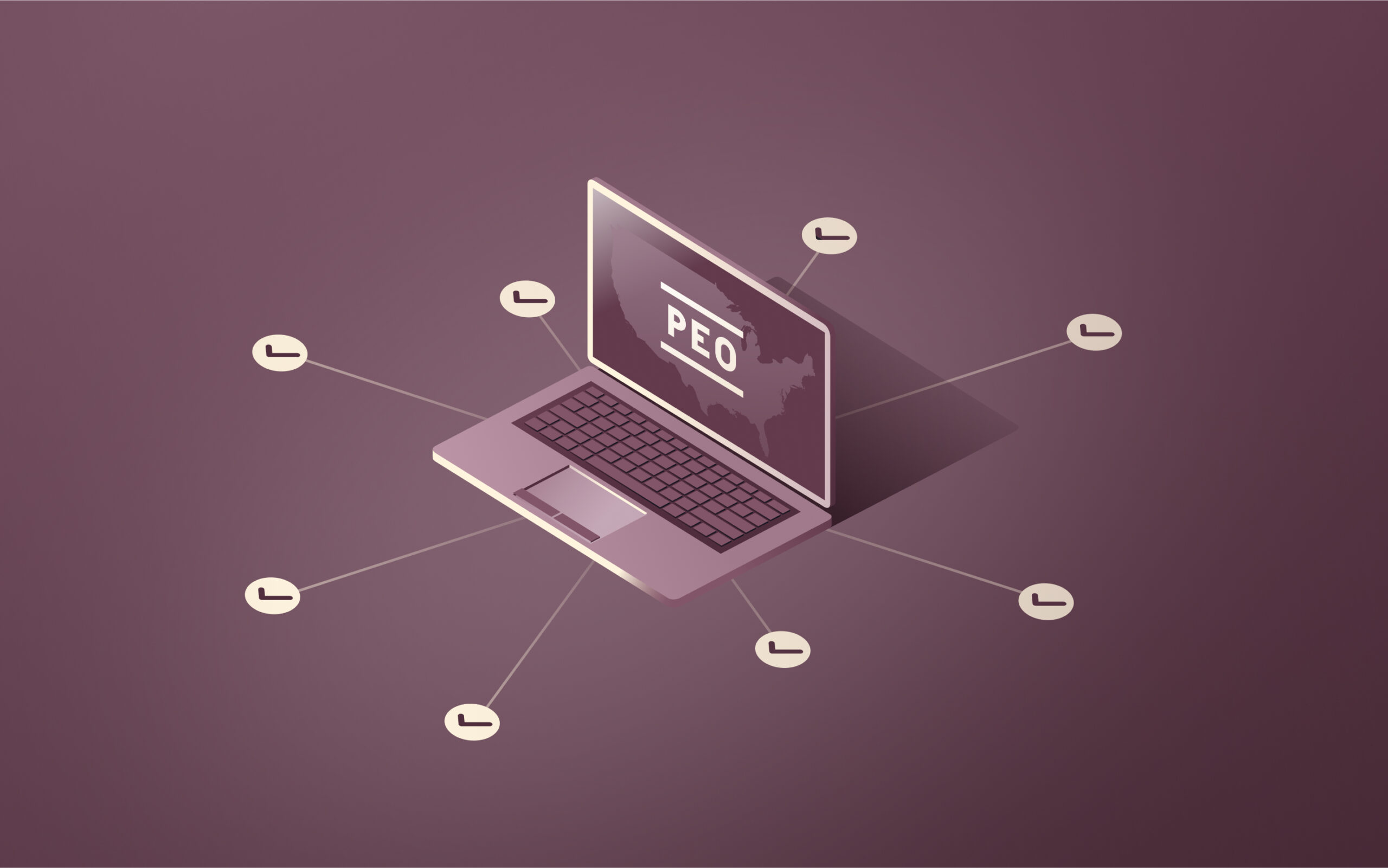PEO in Colorado [2025]

Professional employer organizations (PEOs) help small to medium-sized businesses outsource their HR admin work to streamline and automate common human resources functions—like payroll, benefits administration, compliance management, and workers’ comp. At the same time, PEOs enable business owners to offer their employees access to better and more affordable benefits.
Colorado-based businesses can benefit from using a PEO service for many reasons. For one, keeping track of and complying with Colorado’s complex state and local tax laws can burden smaller enterprises. Not only that, but Colorado’s cost of living is about 20% higher than the national average—so the ability to offer access to better and more affordable benefits while taking advantage of the HR cost savings a PEO can provide is a win-win for your business.
If you’re considering a PEO, this article will help you understand the benefits and what you should look for in a PEO service. From critical compliance tasks to remote IT management, Rippling PEO is a modern solution that simplifies hiring and onboarding people in Colorado and beyond.
Benefits of using a PEO in Colorado
The benefits of using a Colorado PEO include reducing administrative HR work, gaining access to lower insurance costs, receiving professional HR tools and support, and much more.
Offload administrative HR work
When you join a PEO, you’re entering into a co-employment relationship where employer responsibilities are divided between your company and the PEO. In this relationship, you become the worksite employer. This means you remain responsible for company strategy and business operations (R&D, marketing, sales, and customer support), hiring and terminations, and pay rates.
The PEO becomes the administrative employer, meaning it employs your workers under its federal tax identification number (EIN). This allows the PEO to manage employment-related HR tasks, including payroll processing, benefits management, and regulatory compliance.
PEOs streamline HR management by using a blend of technology, expertise, and well-established procedures. Removing manual busy work from your HR team’s plates gives them more time to focus on the strategic work that propels your business forward.
Better employee benefits, at a lower price
One of the biggest advantages of using a PEO is that you can leverage their size to access better employee benefits. According to the National Association of Professional Employer Organizations (NAPEO), about 500 PEOs operate in the United States. These PEOs co-employ 4.5 million workers at 200,000 companies. The large number of workers each PEO “employs” gives them bargaining power when negotiating with insurance providers, helping smaller companies gain access to benefits at a lower cost.
Additionally, PEOs leverage these economies of scale to provide access to more robust benefits plans for the employees of those companies. While PEOs don’t sell the benefits themselves, they offer access through third-party providers. This can include health insurance, disability insurance, life insurance, mental health support, worksite benefits, commuter benefits, dependent care, retirement benefits, and more. These benefits are instrumental in helping businesses attract and retain top talent, but can be difficult for smaller companies to procure independently.
Across the US, the Affordable Care Act (ACA) mandates that businesses with 50+ full-time employees provide health insurance benefits. A PEO can assist Colorado businesses in providing healthcare plans and other benefits to their employees, often at lower rates than they’d normally have access to.
Worry-free compliance with Colorado laws
Using a PEO reduces the burden of compliance with federal labor and employment laws, not to mention state-level and local Colorado laws. These regulations are not only complex, but they’re under constant revision. An example of this is the minimum wage in Colorado. In 2024, the statewide minimum wage is $14.42 per hour—an increase of $0.77 over the previous year. Additionally, several municipalities set their own minimum wage:
Location
Minimum Wage
Colorado State
$14.42
Denver
$18.29
Edgewater
$15.02
Boulder County (only unincorporated areas)
$15.69
Navigating different minimum wage requirements, particularly when managing remote employees throughout Colorado (or across the country), can be challenging. A PEO like Rippling will automatically detect minimum wage violations based on your employees' locations, ensuring compliance with local laws.
Complying with minimum wage regulations is just the beginning. PEOs also offer legal and compliance support with:
- Payroll regulations, including the correct classification of workers (employee or contractor); federal, state, and local tax compliance, including issuing and filing forms; reporting, collecting, and paying payroll taxes with the relevant authorities on time; and complying with other wage laws, such as overtime regulations
- Benefits laws, including helping you navigate Colorado's new paid Family and Medical Leave Insurance (FAMLI) program, plus federal laws like the Affordable Care Act (ACA), COBRA, FSA, HSA, and other benefits-related regulations
- Labor laws, including supplying workers' compensation insurance, guiding you through the maze of Equal Employment Opportunity (EEO) laws, and displaying state-required labor posters and notices
Colorado businesses that violate any of the above can face significant fines and penalties. Despite this, compliance issues are common. The IRS estimates that 40% of small businesses are on the hook for payroll fines every year. Reducing these penalties through compliance support is a significant benefit of using a PEO.
Dedicated support team
Simply put, PEOs are HR experts. Access to all that knowledge and expertise can be a game-changer for startups and small businesses. A PEO can save you time and money and offer advice in many areas, including streamlining benefits administration, training managers, developing employee handbooks, reviewing your safety practices, and other challenges your HR team may face.
What to consider when evaluating a PEO provider in Colorado
Businesses in Colorado have numerous PEO companies to choose from. How do you find the right PEO? Here are some things to consider when selecting a service:
- Your business needs. Different businesses have different requirements, so picking a PEO that offers what you need is crucial. Most PEOs offer a wide range of services, including:
- Payroll services and processing
- Tax withholding, filing, and compliance
- Benefits administration
- Recruitment and onboarding for new employees
- Safety and risk mitigation in the workplace
- Monitoring and tracking time and attendance
- Compliance with regulations
- HR outsourcing
- Budget. Different PEOs use distinct pricing models. Some charge per-employee per-month fees, while others charge a percentage based on each payroll run. Remember to factor in your business's future growth to ensure you can sustain a PEO's cost as your workforce expands.
- Reputation and experience. Does the PEO have a good reputation? How long have they been working with Colorado-based businesses? Review sites like G2 and Capterra can give you insights from the PEO's past and current clients.
- Benefits. Take a close look at the PEO's benefits plan offerings and ensure they fit your company's and employees' needs.
- Benefits renewal rates. Is the PEO transparent about the cost of its plans and future increases? Some PEOs inflate renewal rates after the first year, surprising their clients with a significant change. And if you're unhappy with the new rates, then you're faced with changing PEOs after just one year. Seek a PEO that discloses how its rates vary, so you'll know about future increases.
- Integrations. How will the PEO integrate with what you already have—your existing systems, tools, and technology?
- Does the PEO focus on certain industries? For businesses operating in a specialized industry, using a PEO with expertise in that particular area can be helpful.
- Does the PEO specialize in specific compliance or legal concerns? If your company has to meet certain federal or state regulations or address other legal issues, choosing a PEO with specialized experience can be practical.
- Your exit strategy. At some point, you may choose to leave the PEO. This may be because you want to move your HR activities in-house or because you decided to use a different solution. Most PEOs are challenging to leave; they require you to remove all their systems and start from square one. Considering this possibility before joining a PEO can save you headaches down the road.
Why Rippling PEO is the right choice for your Colorado business
Rippling PEO differs from other PEOs in several important ways. It’s the first PEO that streamlines and simplifies your busy work by syncing HR, IT, and Finance in one platform—from 90-second onboarding to remote IT management. Unlike most PEOs that operate on software created in the 1980s, Rippling runs on modern, fast, and user-friendly software.
Rippling handles all your essential compliance tasks, including setting up state and local tax accounts and automatically flagging minimum wage and overtime violations. And you can provide your team with access to big-company benefits at an affordable price.
With Rippling, you get:
- HR, IT, and Finance in a single platform
- Robust and easily customizable reporting on any workforce data
- Remote team management tools for state and local tax registration, paperless onboarding, device management, and more
- Access to top-quality benefits plans, plus below-average, predictable renewal rates
- Automatic notification of federal, state, and local compliance infractions, along with recommended plans to resolve them
- Automated compliance and risk management processes, including ACA and COBRA administration, anti-harassment training, and distributing digital labor law posters to your workforce
- Access to hundreds of helpful HR resources, guides, and templates
Thinking of bringing your HR in-house in the future? Rippling PEO makes the transition seamless. With other PEOs, the process can be painful and time-consuming. But with Rippling, switching off the PEO and moving to our all-in-one workforce management platform is easy. All your HR, payroll, and employee data remains in your account. At the same time, your system integrations remain intact, and your employees keep their account access credentials—and they keep using Ripping the same way they always have.
FAQs about PEOs in Colorado
What is a PEO, and how does it work?
A PEO is an organization that partners with a company to deliver wide-ranging HR solutions, including HR management, payroll, benefits administration, and compliance support. This partnership operates under a co-employment model, where, for tax purposes, the PEO assumes the legal role of the employer for the company’s workforce.
How does a PEO arrangement affect control over my employees?
The PEO takes care of HR tasks and employment-related HR responsibilities while the company retains authority over day-to-day operations and employee management.
What is a Certified PEO?
A Certified PEO (CPEO) is a PEO that has satisfied specific criteria related to its background, expertise, finances, and reporting, as determined by the IRS. The certification is voluntary and doesn’t represent an endorsement by the IRS. It does indicate that the PEO has passed a series of assessments. At one time, CPEO status could provide certain tax benefits for companies. These days, the main advantages of certification are mostly obsolete.
What size company can benefit from a PEO?
Businesses of all sizes can use a PEO, but small to midsize companies benefit the most. PEOs can assist in reducing admin costs by outsourcing manual HR work, allowing HR teams to focus on more strategic initiatives. PEOs also offer access to high-quality benefits plans that might otherwise be challenging for companies to obtain independently.
How does a PEO charge for its services?
The cost of using a PEO depends on the number of employees and the services provided. A PEO may apply a flat fee per employee or charge a percentage of the total payroll.
What is the implementation process, and how long does it take to go live?
In most cases, the first step is for the PEO to collect the required information about your employees, including payroll data, employment records, and benefits info. Then, the PEO will set up their systems to take care of your HR, payroll, and benefits administration. They’ll also integrate their technology with your existing systems. They may conduct sessions to onboard your employees, explain new procedures, provide training, and offer ongoing support.
Timelines depend on the size of your business and the complexity of the services required, ranging from just a few weeks to several months.
Are PEOs regulated?
Yes, PEOs are regulated on both the federal and state level. They may also obtain accreditation from industry organizations to increase their credibility.
Are PEOs in Colorado required to have special certifications or licenses?
Yes. PEOs in Colorado require certification from the Colorado Department of Labor and Employment. Additionally, they require a license from the Colorado Secretary of State to conduct business.
What happens if I want to terminate my relationship with a PEO?
One day, you may decide to bring all your HR in-house and move off your PEO. Or you may want to switch providers. With many PEOs, this can be a long, difficult, and disruptive process. You could spend months setting up a new HR system to take care of your payroll, benefits administration, and other processes the PEO handled on your behalf.
Rippling PEO makes moving off the PEO a breeze. It’s as simple as turning it off and transitioning to Rippling’s all-in-one workforce management platform. There’s no disruption, and all your systems, data, and integrations will remain intact.
In what states is Rippling PEO available?
Rippling PEO is available in all US states.
Disclaimer: Rippling and its affiliates do not provide tax, accounting, or legal advice. This material has been prepared for informational purposes only, and is not intended to provide or be relied on for tax, accounting, or legal advice. You should consult your own tax, accounting, and legal advisors before engaging in any related activities or transactions.





